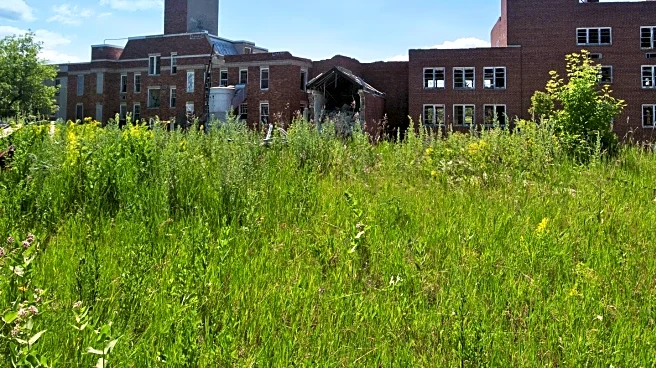What's Happening?
Patients from Muckamore Abbey Hospital in Antrim are being resettled into community homes following a public inquiry into abuse allegations at the facility. Dawn Jones, whose non-verbal son Timothy lived at the hospital for 12 years, reports significant improvements in his well-being since moving to his own bungalow. Timothy now receives 24-hour support from Positive Futures, a charity dedicated to assisting individuals with complex needs. The resettlement process aims to transition patients from institutional care to community placements, with 24 patients already moved since August 2022. The Department of Health plans to resettle the remaining 13 patients by the end of the year, ensuring the hospital's closure.
Why It's Important?
The resettlement of patients from Muckamore Abbey Hospital marks a significant shift in the approach to care for individuals with complex needs, emphasizing community integration over institutionalization. This transition is crucial in addressing past abuse allegations and improving the quality of life for former patients. The move reflects broader healthcare policy trends towards personalized, community-based support systems. It highlights the importance of providing adequate resources and support to facilitate such transitions, potentially serving as a model for similar institutions nationwide.
What's Next?
The public inquiry into Muckamore Abbey Hospital's abuse allegations is expected to release its final report and recommendations later this year. The Department of Health remains committed to resettling all remaining patients and closing the hospital. This process may prompt further scrutiny of institutional care practices and lead to policy reforms aimed at preventing abuse and enhancing patient care standards. Stakeholders, including healthcare providers and advocacy groups, will likely monitor the inquiry's outcomes and push for systemic changes.
Beyond the Headlines
The resettlement initiative at Muckamore Abbey Hospital raises ethical questions about the treatment of vulnerable individuals in institutional settings. It underscores the need for rigorous oversight and accountability to prevent abuse. The transition to community living also highlights the potential for improved autonomy and quality of life for individuals with complex needs, challenging traditional care models. Long-term, this shift may influence cultural perceptions of disability and care, promoting inclusivity and empowerment.









